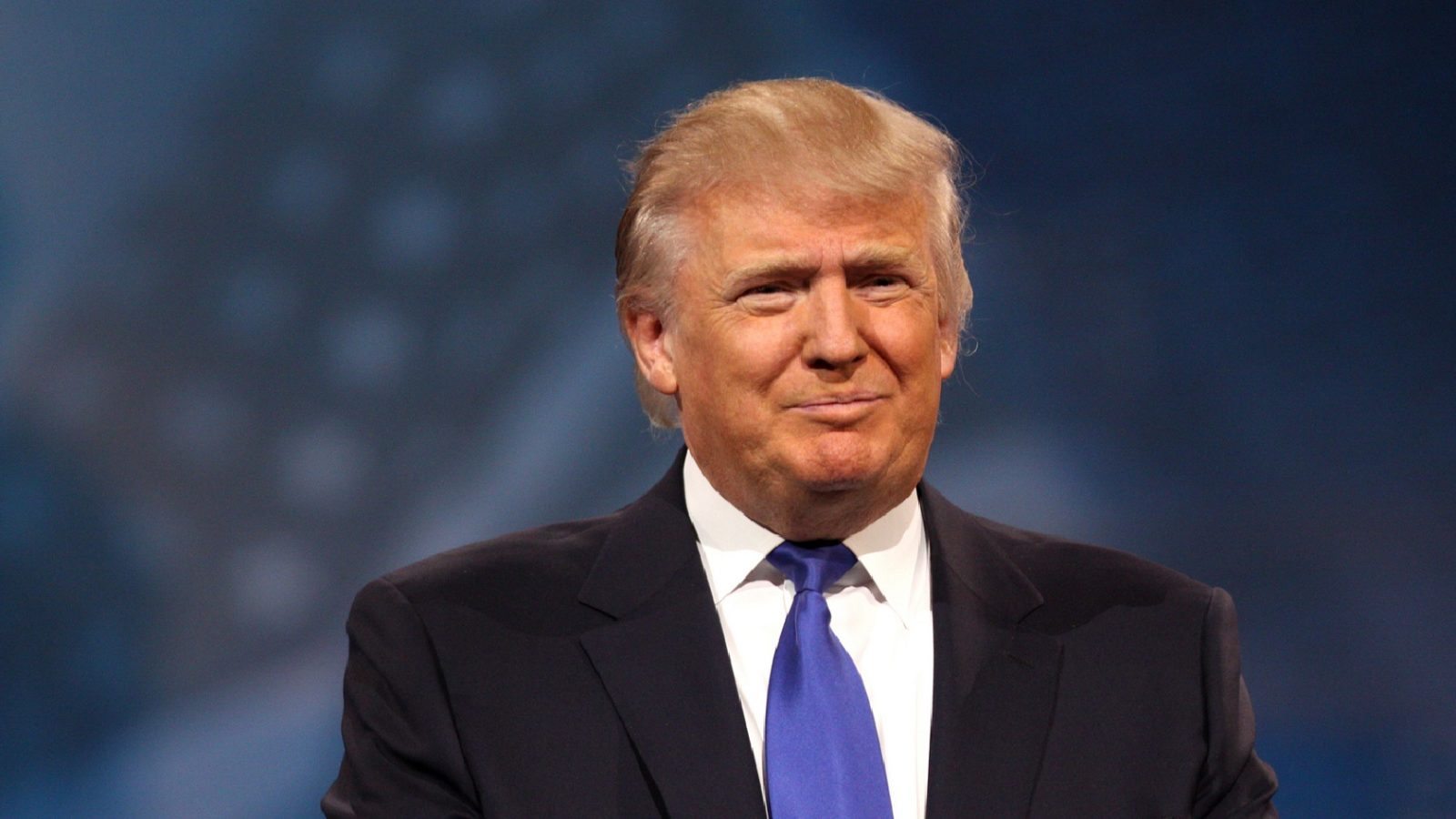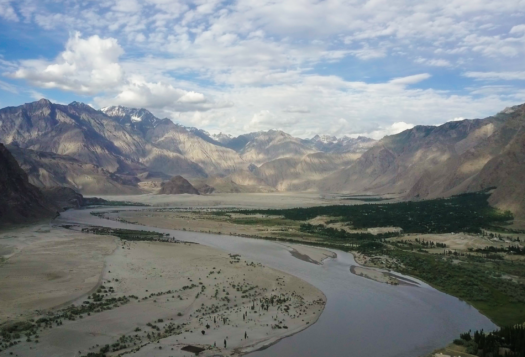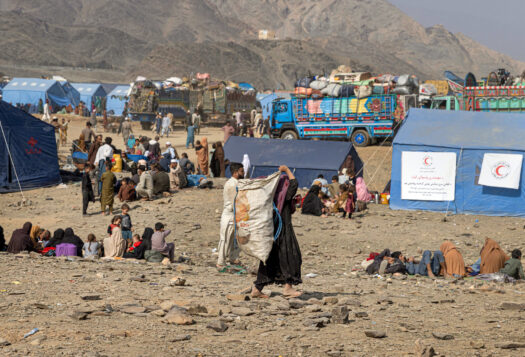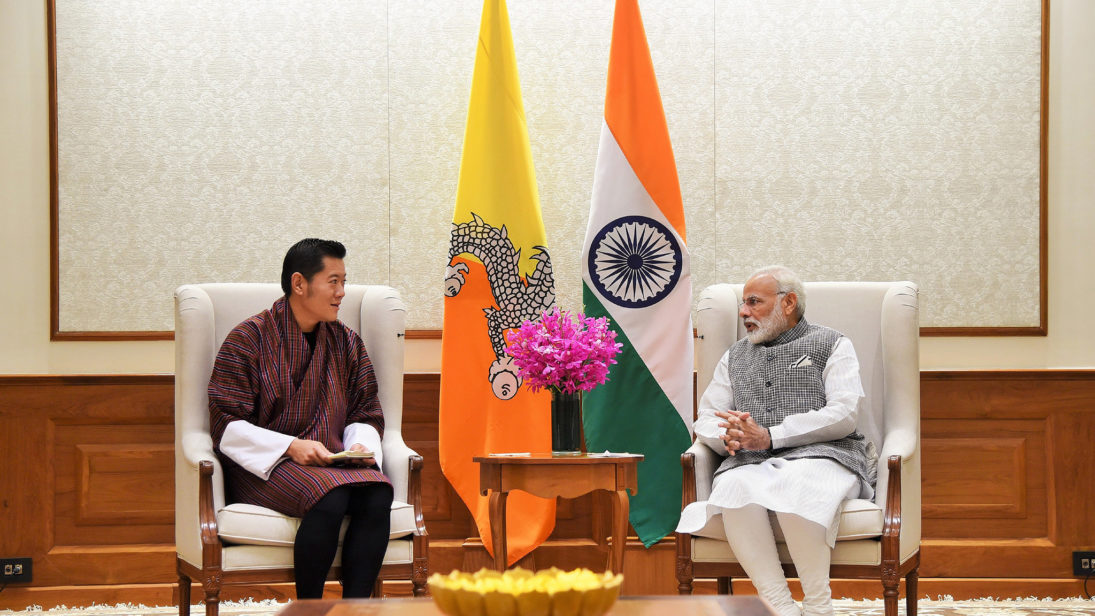
This year’s India-Bhutan Development Cooperation Talks were held on November 10, in the wake of the Doklam standoff. However, the agenda stuck to business as usual, and was completely silent on the India-China showdown at the contested Himalayan border that attracted international attention. Over the course of their relationship, India’s ties with Bhutan have largely been special and friendly in an otherwise difficult South Asian neighborhood. However, New Delhi must not overlook emerging divergences in Thimpu’s perceptions of and expectations from their relationship and how their ties may be affected by India-China and China-Bhutan dynamics. New Delhi needs to pay attention to the winds of change blowing in Bhutan and sentiments that seem to desire Thimpu’s coming of age with respect to its foreign interests and security policies. India needs to prioritize perception and narrative management regarding India-Bhutan ties. The onus lies not only on the Indian government but also the larger strategic community to emphasize Bhutan’s centrality in India’s national security rather than supporting the notion that Bhutan has outsourced its security to India. Such a narrative will go a long way in sustaining favorable public opinion towards India in Bhutan.
In the midst of the Doklam standoff, the entire focus was on the nature of India-China relations and the fallout for stability in the region. But what transpired in the foreign policy outlook of Bhutan is equally important. Neither is Bhutan’s friendship treaty with India set in stone nor should its non-formal relationship with neighboring China be taken as permanent. This realization is important as India engineers its relationship with Bhutan in the post Doklam era.
There is no doubt that New Delhi’s relationship with Thimpu is a special one. For instance, Amar Nath Ram, an Indian Foreign Service officer represented Bhutan as its deputy permanent representative at the United Nations in New York from 1971 to 1973. However, Bhutan’s admission as a member of the United Nations in 1971 and later its turn to democracy in 2008 also bestowed on the nation a more operational sense of sovereignty and autonomy. Although the 1949 Treaty of Friendship between India and Bhutan, updated in 2007, mentions in Article 1 that there shall be perpetual peace and friendship between the two countries, the word “perpetual” is alien to international relations, where the dynamics of relationships are determined by national interest. While Article 2 of the 1949 version allowed for Bhutan “to be guided by the advice of the Government of India in regard to its external relations,” the 2007 version has circumscribed such a relationship to both sides cooperating “closely with each other on issues relating to their national interests.” According to Article 6 of the 1949 version, Bhutan was “free to import with the assistance and approval of the Government of India, from or through India into Bhutan, whatever arms, ammunition, machinery, warlike material or stores may be required or desired for the strength and welfare of Bhutan.” This provision is also reflected in Article 4 of the 2007 version, but it says that Bhutan “shall be free to import, from or through India into Bhutan, whatever arms, ammunition, machinery, warlike material or stores as may be required or desired for the strength and welfare of Bhutan.” These changes in the treaty indicate India’s relative recognition of Bhutan’s desire for more autonomy in its foreign and security policies.
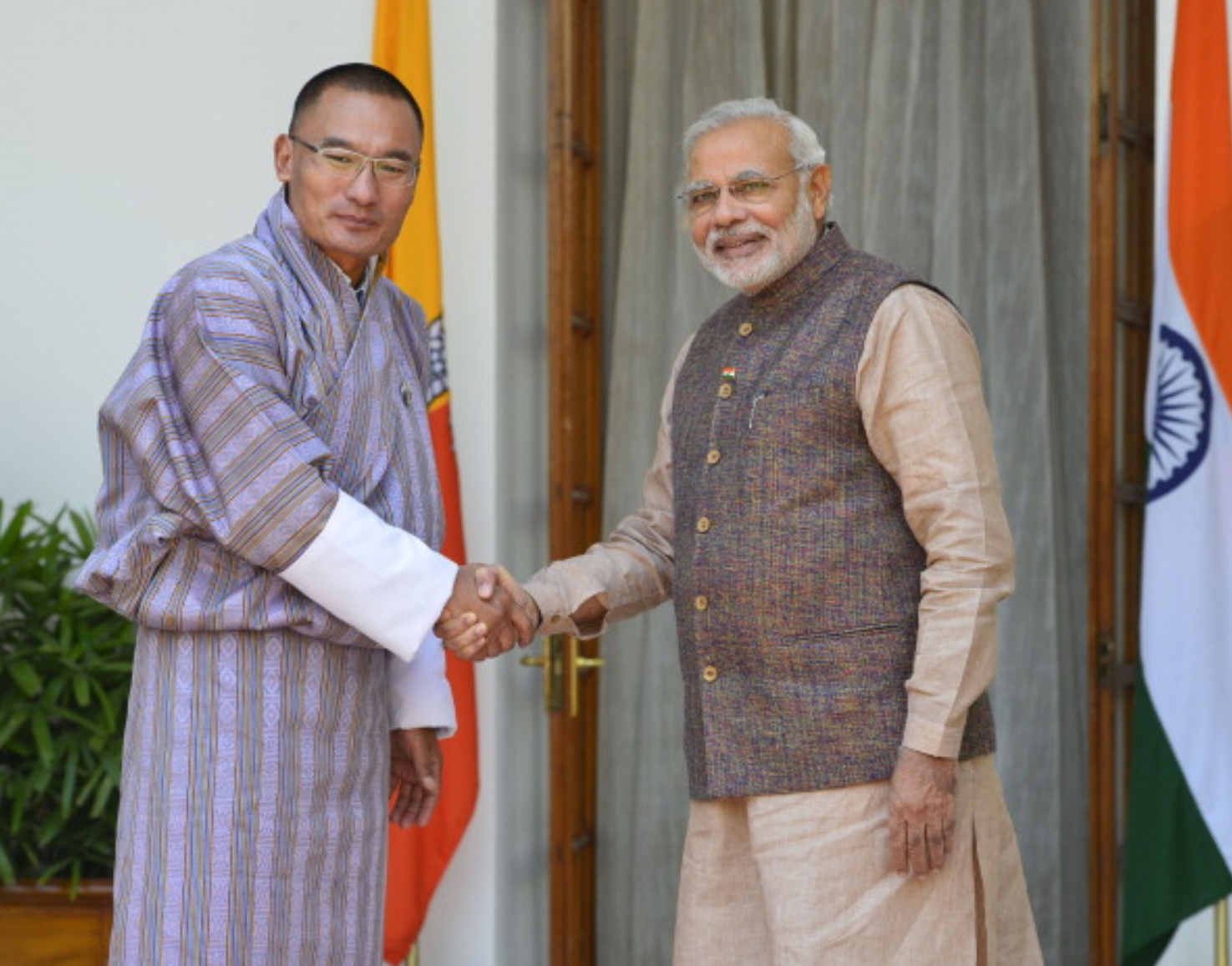
But voices from Bhutan seem to indicate the prevalence of negative perceptions about India that will require sober thinking in New Delhi. For instance, there seems to be a rising frustration within Bhutan about its dependence on India for its security. Bhutanese strategic experts have argued that it was India’s security that was on the line during the Doklam standoff because the area in conflict was close to India’s vulnerable Siliguri corridor, also called the “chicken’s neck.” Moreover, India’s decision to stop subsides for cooking gas and kerosene to Bhutan in 2013 was perceived as the case of a powerful country arm twisting its smaller neighbor in response to Bhutan’s then Prime Minister Jigme Yoeser Thinley meeting then Chinese Premier Wen Jiabao in 2012 on the sidelines of a summit in Rio De Janeiro without prior consultations with New Delhi.
The nature of the India-Bhutan relationship in the context of China’s foray into South Asia is being debated in India as well. One Indian commentator contended that “the prevailing sentiment in Bhutan is in favor of resolving the issue with China amicably without further delay, so that the country can have a peaceful boundary with its northern neighbor as it has with India.” Bhutan started talking to China on the border issue in 1984 and till 2016, 24 rounds of talks have taken place, with varying inferences being drawn. After the latest round, Bhutan’s Foreign Minister Lyonpo Damcho Dorji expressed Thimpu’s desire to expand mutually beneficial cooperation between Bhutan and China, despite not having established diplomatic relations and willingness “to seek a solution to the boundary issue that is acceptable to both sides through amicable consultations.” A senior Bhutanese journalist contended that Bhutan has not solved the border issue with China to protect India’s security interests in the western sector while a Bhutanese scholar commented that Thimpu “should have very good relations with India and should sustain the same but Bhutan should also in its own time start diplomatic relations with China.” Such developments portend changing trends in China-Bhutan dynamics, whereby Bhutan’s desire for normalizing its relations with China, and Beijing’s willingness to make concessions for such an outcome demand New Delhi’s attention more than ever before.
Bhutan’s desire to balance its relations with India and China cannot be faulted. However, for New Delhi, to raise its voice against such autonomy on the part of Thimpu is bound to be seen as domineering. New Delhi seems to have realized that Thimpu is undergoing changes, as seen by its agreement of the 2007 revisions of the 1949 friendship treaty or taking Bhutan’s temporary withdrawal from the Bhutan-Bangladesh-India-Nepal (BBIN) motor-vehicles agreement (MVA) dialogue as a matter of procedural internal decisionmaking. However, it is still unclear whether New Delhi is ready to handle the consequences of a Bhutan that might consider it prudent to resolve its border dispute and develop formal diplomatic ties with China.
***
Image 1: MEAPhotogallery via Flickr
